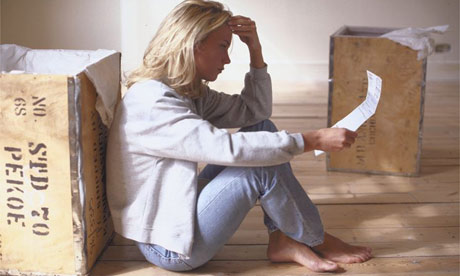The number of mortgage repossessions in the first quarter has fallen to the lowest on record. Data from the Council of Mortgage Lenders revealed that 2,100 homes were repossessed in the first three months. According to the figures, there were 1,500 homeowner repossessions and 600 buy-to-let repossessions. The CML said that if this rate continued […]
 The number of mortgage repossessions in the first quarter has fallen to the lowest on record.
The number of mortgage repossessions in the first quarter has fallen to the lowest on record.
Data from the Council of Mortgage Lenders revealed that 2,100 homes were repossessed in the first three months. According to the figures, there were 1,500 homeowner repossessions and 600 buy-to-let repossessions.
The CML said that if this rate continued through 2016 it would put the annual number of repossessions to 8,400, lower than any year since 1982.
The number of mortgages in arrears of 2.5% or more has also fallen below the 100,000 mark for the first time in more than a decade.
There were 96,200 loans in arrears at the end of March, down from 101,700 at the end of December, and 111,200 at the end of the first quarter of 2015.
Paul Smee , CML director general, said: “We cannot completely avoid the risk of any individual household experiencing arrears or repossession.
“But lenders continue to work very effectively to help their borrowers through periods of difficulty when they do occur, and borrowers should be reassured that most cases of arrears can be resolved and will not lead to repossession. The key to dealing with difficulty is to tackle it early, and to communicate with your lender as soon as you think you may be facing problems.”
There has been a steady fall in mortgage repossessions since 2008, coinciding with lower interest rates and a proactive approach from lenders in managing borrowers in financial difficulty.
Separate data from the Ministry of Justice shows that eviction rates are much higher in the rental sector.
In the first three months there were 10,636 evictions in England, down 3% on the same quarter last year.
Campbell Robb, chief executive of Shelter, said: “Today’s figures are a painful reminder of the catastrophic impact welfare cuts and our drought of affordable homes are having on thousands of people in England.
“With so many trapped in expensive and unstable private renting, every day at Shelter we hear from families facing the devastating reality of losing their home. Our advisers are already struggling to keep up with demand, and we’re extremely worried that short-sighted plans in the government’s Housing Bill will further shrink the numbers of genuinely affordable homes and make things even worse.
“The government can’t continue to ignore the root cause of this crisis and the ordinary families most affected by it – they must act now to build homes that people on lower incomes can actually afford to rent or buy.”
The number of people evicted from rental accommodation in 2015 was 42,728, the highest since records began in 2000.
The number of tenants who were evicted has gone up 53% since 2010, the equivalent of over 250 people losing their home each day.
This compares to 5,594 mortgaged property repossessions by county court bailiffs, even though the rented sector accounts for only around a third of the housing stock.














